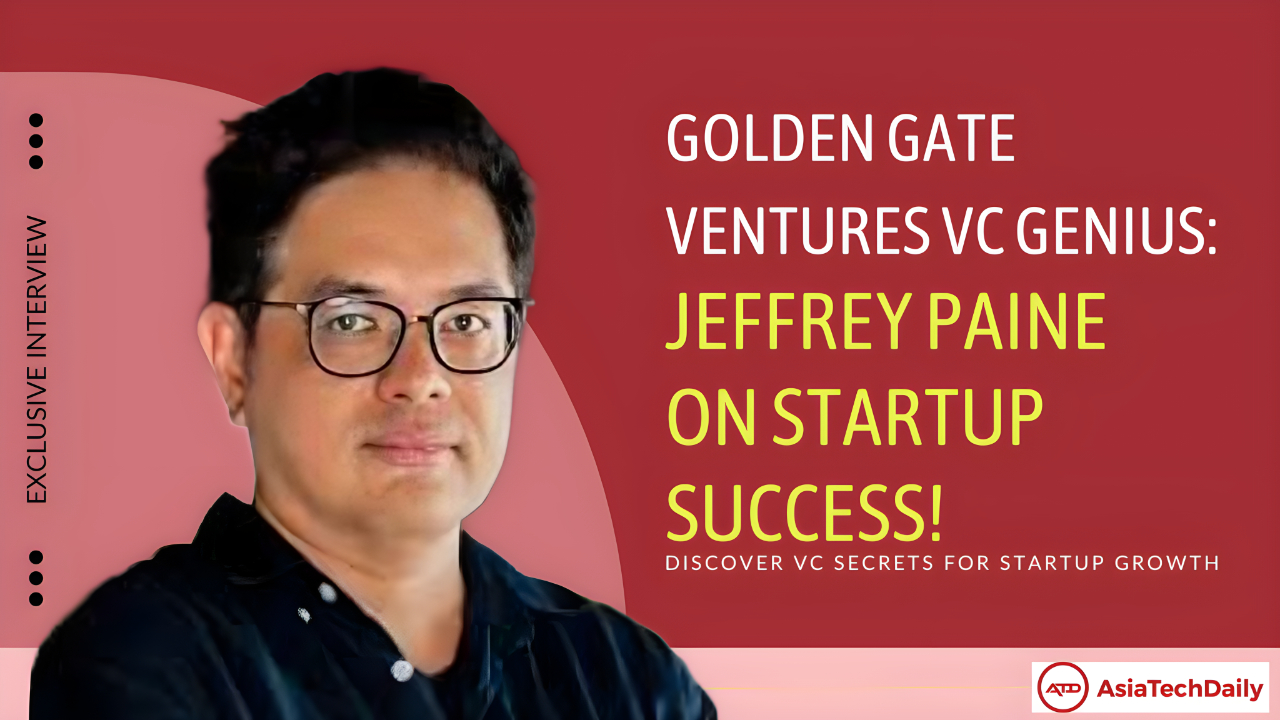AsiaTechDaily – Asia's Leading Tech and Startup Media Platform

Be authentic, prepared: Rex Fong, founding partner at Capitale Ventures, tells startups
Startup founders need to be authentic and prepared when they get the chance to meet prospective investors, according to Rex Fong, founding partner at investment and advisory group Capitale Ventures.
In an interview with AsiaTechDaily, Fong also urged startup CEOs to backup their valuations with numbers and narratives to convince investors to pour money into the business.
“Numbers without narratives to back them up could be easily manipulated or biased, stories that are not connected to the numbers could go on to a fantasy land or lead to unreal valuation,” Fong added.
Fong’s Capitale Ventures is an investment and advisory group with expertise in complex, cross-border transactions. It partners with entrepreneurs in funding their growth stories through innovative market access and public venture capital strategies.
He talks to AsiaTechDaily about the firm’s investment strategies, the fundraising journey, and other points. Edited excerpts below:
What background and domain expertise do you have? And when did you first think about starting a fund?
I was mainly educated in accounting and finance. I was in financial audit and transaction advisory, in-charge of valuation, financial due diligence, forensic investigation engagements. I was also involved in litigation support engagements, concerning auditors being alleged of professional negligence for not detecting fraud happening in private companies and public listed entities.
During Covid-19, together with two partners, we started Capitale Ventures, being the investment arm to provide capital to emerging growth companies. This was at that time a natural progress from our business advisory, where we helped scale businesses, prepared them for IPO and fundraising, etc, to a position where we were able to invest in these businesses that we advised and knew in and out.
What types of companies/sectors do you look to invest in? and What’s your mental model for investing?
We are sector-agnostic, looking at a very diverse set of companies across Southeast Asia. We focus on post-revenue companies and scalable business model with a solid clear path to profitability.
As the team is not from a VC background, the typical investment strategy for seed or early-stage fund on diversifying into a portfolio of companies and then follow-on investments into potential winners is simply not in our DNA who came from corporate finance and business advisory background.
What makes us distinctive is that, along with our core advisory practice, we are able to bring our unique ability to take positions in companies and value-add through our financial and operational know-how and network of strategic partners. We help our portfolio companies in formulating M&A strategy, business and financial planning, and global capital markets strategies, with a view to going public through public venture capital within 24- 36 months.
In other words, we structure the exits.
How many startups do you invest in per year in general?
The firm is currently led by three partners from diverse backgrounds and experience and we commit to spending time in every company to help businesses with growth strategy, business model, cost optimisation or margin improvement, working capital and cash flow, etc.
Currently, we can only invest and work with 5-8 companies per year, a very high conviction and concentrated portfolio.
You mentioned public venture capital strategies as one of the investment exit mechanisms, could you elaborate more?
Rather than tapping traditional VC funding, emerging venture stage companies went public at early stage (e.g. we prefer series A companies with market cap around US$20-50 million) and raised public VC funding from individual investors, family offices, and small institutional asset managers.
Raising multiple funding rounds post-public is very common with the public VC model to fund company growth. In North America, these refer as private investment in public entity (PIPE), where institutional investors or accredited investors invest in a public company at a certain discount to the current market price.
Traditional VC path is a good option if founders are looking for important strategic value-add that only a strong VC can provide along with its investment money. All funding path options have pros and cons, not all companies well-suited for VC funding, or simply don’t want VC funding.
There must be some tough times in building up the first fund during Covid period, please let us know more about it and how you (or your team) overcome the difficult times.
Definitely tough to raise funds from LPs, especially for a first-time fund manager with no track record (in fund management) and during this Covid period. We just have to keep moving, get data points and feedback from investors and fellow fund managers, and make adjustments.
We continue to build trust with a group of close investors and consistently show them the quality deals otherwise inaccessible opportunities. We pitch to investors without requiring them to commit to a blind pool. We set up one sub-fund /SPV for each investment, the investors assess whether to invest with us in this particular investment deal, or choose to invest directly, which is a preference for some of the family offices, we are okay, it shows our ability to originate, structure and execute good deals.
With that, we are on our way to build a track record, carve our niche, grow our AUM and LP networks.
Additionally, Do you have any other advice for anyone looking to start a fund?
Build trust. The key here is consistency and accountability, doing what you say you would do, trust starts there.
What mistakes do you see founders make when raising money?
As we look at companies at growth stage, the founders or management team tend not sufficiently provide explanation to support its valuation, or not linking the stories of the business to the numbers.
Valuation is not just a collection of numbers on a spreadsheet, ultimately those numbers shall tell a story to back up the valuation. Numbers without narratives to back them up could be easily manipulated. Stories that are not connected to the numbers could go on to a fantasy land or lead to unreal valuation.
When you are a startup company, the stories tend to take the front seat to drive the valuation, people like to hear a runaway story from a visionary leader, pricing is untethered to numbers or business model. When the company becomes a young matured company, the CEO must then make sure the execution of the business plan and strategy, show positive cash flow, a path to profitability, not just about stories, numbers take the
front seat now to drive the valuation.
What’s your advice to entrepreneurs who have a chance to meet investors like you?
Be authentic and be prepared.
What are the top 3 questions that you always ask the founders?
While my other two partners evaluate a company from the angle of founders and management team, technology and IP ownership, product-market fit, business model, growth potential, etc, I am a story-number person, I always looking for answers on
- What are the value drivers of the business?
- How and when are these value drivers convert into earning power and cash flow
- How to multiply and scale the earning power and cash flow
What’s your general thought about the term “Global” and What are the important factors (criteria) for local startups to consider for international expansion?
Going global or regional expansion is part of a strategy to scale the business. It also depends on whether the products or services represent a global or regional opportunity, or need localisation with a different approach.
Understand the culture, understand the market, protect your IP where possible, seek support and leverage on government resources, speak to your advisors or investors who help to open doors or might direct you otherwise.
What kind of startup or tech industry will impact the world in the future like 2-3 years locally in your view? (or what tiny/nonexistent markets today will be trillion-dollar markets in 10-20 years?)
As Southeast Asia continues to grow economically, huge potential in SME tech space to empower and transform SME businesses, enabled by blockchain, AI/big data in areas of financial inclusion, education, healthcare, social impact, and sustainability.
What are the top-three books, or movies that changed your life and why?
– How to Master the Art of Selling, by Tom Hopkins
A book that I read after I came out from the professional firm or the comfort zone, turning myself into an entrepreneur. Go out there and do sales.
– What It Takes: Lessons in the Pursuit of Excellence by Stephen A. Schwarzman
A book that I read after I started the fund management and investment journey, providing insights and learning on building an asset management firm, deal structuring, and negotiation, especially in crisis and tough situations.
– What’s in a Name by Nazir Razak
A book that I read recently that gave me a lot of thoughts on what can I do more for my home country Malaysia.
What are the top three life lessons that you want your (future) sons and daughters to know?
– Become a person of integrity, do what you say you will do.
– Do the right things and have the courage to speak up and stand up for the right things.
– Be grateful to both good and bad, life is not fair, get used to it and continue to learn.





